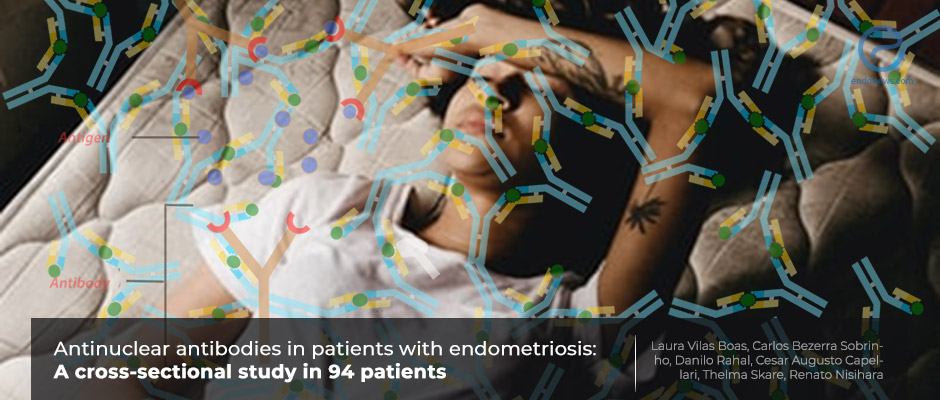Antinuclear Antibody May Be Linked to Milder Disease in Endometriosis
Dec 23, 2021
The autoantibody could serve as a diagnostic marker but more research is needed.
Key Points
Highlights:
- The prevalence of antinuclear antibody positivity is higher among women with endometriosis compared to controls.
Importance:
- The study confirms the presence of autoantibodies in endometriosis, and an antinuclear antibody may have a diagnostic value for the disease.
What's done here:
- This is a cross-sectional analysis analyzing the antinuclear antibody, extractable nuclear antigen, and anti-double stranded-DNA profiles of 94 women with endometriosis and 91 controls.
Key results:
- Patients with endometriosis had a 21.2% prevalence of positive antinuclear antibodies. This percentage was 5.4 in controls.
- The extractable nuclear antigen profile and anti-double stranded-DNA were negative.
- Patients with positive antinuclear antibodies were more asymptomatic and had less painful periods.
- There was no association with disease duration, patient age, or endometriosis stage.
Limitations:
- The main limitations of the study are the small sample size, the cross-sectional design, and the lack of obstetric history of the control group.
- The presence of antinuclear antibodies could be related to viral infections, drugs, or pregnancy.
Lay Summary
The prevalence of positive antinuclear antibody was 21.2% in women with endometriosis compared to 5.4% in controls, according to a new study published in the journal Human Immunology. Antinuclear antibodies are autoantibodies that bind to the content of the cell nucleus. Interestingly, patients with positive antinuclear antibody were more likely to have no symptoms and had less painful menstruation. “The presence of this autoantibody may be linked to a milder clinical expression of the disease,” wrote the authors of the study.
These findings support the idea that endometriosis is an inflammatory disease and suggest that antinuclear antibody may be used as a diagnostic marker for the disease.
The presence of autoantibodies such as antinuclear antibody has previously been reported in patients with endometriosis. Here, a team of researchers led by Professor Renato Nisihara from the Federal University of Paraná in Brazil evaluate the prevalence and possible clinical associations antinuclear antibodies patients with endometriosis.
The researchers studied the antinuclear antibody and extractable nuclear antigen (anti-Ro, anti-La, anti-Sm, and anti-RNP) profiles as well as anti-double stranded-DNA in 94 endometriosis patients and 91 controls. They also assessed the epidemiological, clinical, and staging data of endometriosis.
Apart from a higher prevalence of positive antinuclear antibody among endometriosis patients, the extractable nuclear antigen profile and anti-double stranded-DNA were negative. There were no associations between the duration of the disease, the age of the patient, or the stage of endometriosis.
Research Source: https://pubmed.ncbi.nlm.nih.gov/34686383/
antinuclear antibody autoantibody disease severity period pain

